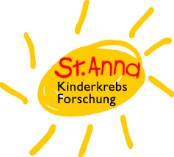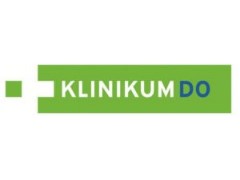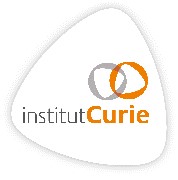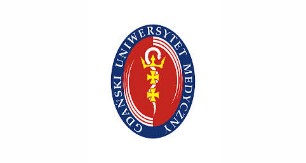The partnership includes all the existing EU national Clinical trial groups dedicated to the treatment and research in favour of children and adolescents with VRT and therefore all the existing paediatric VRT registries.
All these Groups have the endorsement of their paediatric oncology national societies and have elaborated a development plan before this application: “ERN Paed Can ROADMAP for Cross–Border Health Care Needs. Guidance to qualified Advice on Diagnostics and Treatments for Children and Young People with Cancer. The Very Rare Tumours Sub-network”.
ASSOCIATED PARTNERS
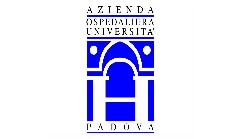 P1 Azienda Ospedaliera di Padova (AOPD) is a recognised reference centre on a regional and national level (L.R. n.56/1994 and D.P.C.M. 8.1.1999). It is integrated with the University of Padova for teaching and research activities. The pediatric Hematology Oncology Division (pHOD), part of AOPD, is a clinical, research and teaching Institution that represents the reference centre for pediatric oncology in the north-east of Italy. pHOD coordinates Italian protocols for soft tissue sarcoma (STS), lymphoma, very rare tumors, CNS tumors and new drugs. It hosts the Italian very rare tumour registry. In addition, pHOD collaborates in a number of international studies and hosts the coordinating centre of the European paediatric STS Group. pHOD has already participated in EU supported projects (www.aopd.veneto.it).
P1 Azienda Ospedaliera di Padova (AOPD) is a recognised reference centre on a regional and national level (L.R. n.56/1994 and D.P.C.M. 8.1.1999). It is integrated with the University of Padova for teaching and research activities. The pediatric Hematology Oncology Division (pHOD), part of AOPD, is a clinical, research and teaching Institution that represents the reference centre for pediatric oncology in the north-east of Italy. pHOD coordinates Italian protocols for soft tissue sarcoma (STS), lymphoma, very rare tumors, CNS tumors and new drugs. It hosts the Italian very rare tumour registry. In addition, pHOD collaborates in a number of international studies and hosts the coordinating centre of the European paediatric STS Group. pHOD has already participated in EU supported projects (www.aopd.veneto.it).
P2 St. Anna Kinderkrebsforschung (CCRI) was founded in 1988 with the overall aim to improve the treatment options for children suffering from cancer through basic and translational research. CCRI is closely affiliated with the St. Anna Children’s Hospital, the largest clinical haemato-oncological centre for the treatment of childhood cancer in Austria and its two spin-offs Labdia Labordiagnostik GmbH and Activartis GmbH. CCRI focuses on T cell and DC-cell mediated immunology and on a selected spectrum of paediatric cancer diseases such as Leukaemia, Neuroblastoma, Ewing Sarkoma, Lymphoma, Langerhans cell histiocytosis and secondary diseases relevant in immunocompromised patients such as mycosis and viral infections. CCRI provides access to state-of-the-art methodologies and technologies such as FISH, Array CGH, qualitative and quantitative PCR, FACS analysis, cytogenic analysis and basic molecular biology techniques and runs a clinical trial unit (S2IRP) coordinating also large-scale international trials (www. science.ccri.at).
P3 Klinikum Dortmund gGmbH (KlinikumDo) is part of the Westfalian Childrens Center at the Klinikum Dortmund gGmbH, which is the largest Municipal Hospital in Northrhine Westfalia, Germany. The Westfalian Children Center takes care of more than 9000 in patients and 50.000 outpatients per year. Within the Childrens Hospital, the Pediatric Oncology Center is providing care for annually approx. 60 newly diagnosed children with cancer. In addition, many children and adolescents with chronic hematological, hemostaseological or immunological diseases are treated at the Pediatric Oncology Center. The chair of the Childrens Hospital, Prof. Dr. Dominik T. Schneider has a long-time clinical and research experience in germ cell tumors, gonadal tumors and very rare tumors (VRT). Since 2006, he is co-chair of the German GPOH working group and registry on very rare tumors (Seltene Tumorerkrankungen in der Pädiatrie, STEP), with more than 450 patients registered since 2009. Within STEP, Prof. Schneider coordinates the consultation process for patients and their physicians confronted with very rare tumors, providing advice and assistance in clinical decisions. Prof. Schneider is founding member of the European Cooperative Study Group on Pediatric Rare Tumors (EXPeRT) and partner in the ExPO-r-Net project, in which he coordinates the consultation processes by building a virtual tumor board consultation platform. Since 2012, Prof. Schneider is member of the national executive board of GPOH. Prof. Schneider has published 90 research articles, 10 review articles, 16 case reports and 18 book chapters. He is Editor of the book “Rare Tumors in Children and Adolescents”, Springer 2012. For his work on germ cell and very rare tumors he has won several prizes from GPOH, SIOP and ASCO (Brigid Leventhal Award 2003). Prof. Schneider has collected several national grants, among others from the German Cancer Aid and the German Childhood Cancer Foundation (www.klinikumdo.de).
P4 Eberhard Karls University Tübingen (EKUT) is marked by its success in the German federal and state governments’ Excellence Initiative. Tuebingen is one of Germany’s eleven universities in the top “Excellent” class. Tuebingen is also home to eight collaborative research centers, is involved in five transregional collaborative research centers, and hosts six research training groups – all sponsored by the German Research Foundation. The Dep. of Pediatric Hematology/Oncology of the Children’s Hospital represents one of the largest pediatric oncology centres in Germany. The center provides highly specialized personalized patient care, diagnostics and research for children with oncological and hematological diseases. The German Registry for Rare Pediatric Tumours (STEP) of the GPOH – since 2006 under the lead of Dr. Ines Brecht and Prof. Schneider (Hospital Dortmund) is located at the Children’s Hospital. STEP is part of the European Cooperative Study for pediatric Rare Tumors (EXPeRT) within the EXPO-r-NET project. The Pediatric Oncology Department is involved in the work of the Centre for Rare Diseases Tuebingen which was the first German center for rare diseases to begin operations in 2010 (www. uni-tuebingen.de).
P5 Institut Curie (CURIE) is one of the largest paediatric oncology departments in Europe taking care of 320 new patients with solid tumors less than 25 years each year. The DOPAJA applies guidelines and participates in multicentre trials, built in the framework of the European continental branch of SIOP (http://raretumors-children.siope.comsbox.com/), the French Society of Pediatric cancer (SFCE) (http://sfce.sfpediatrie.com/) and the European “Innovative Therapies for Children with Cancer” (ITCC) consortium (http://www.itcc-consortium.org/). Paediatric oncologists working at Institut Curie are strongly involved in several SIOP- Europe groups (neuroblastoma, brain tumours, Ewing, soft tissue sarcoma, nephroblastoma, retinoblastoma, very rare cancers, Hodgkin and non-Hodgkin lymphoma) and are PI in France or Europe of several national or European studies (medulloblastoma, neuroblastoma, soft tissue sarcoma, retinoblastoma). There is excellent multidisciplinary care with well developed, integrated psycho-social, educational and family support. Diagnosis facilities are developed according to the highest current standards:
- Referring paediatric pathologist
- The Institut Curie’ molecular platform is one of the of 28 regional molecular genetics centres labelled by French National cancer Institute (INCa), allowing molecular diagnostics and tumour molecular profiles for therapeutic decision into routine clinical practice. These platforms play an active role in current European studies on neuroblastoma, medulloblastoma, soft tissue and Ewing sarcomas (curie.fr).
P6 Medical University of Gdansk (GUMed) is the largest medical university in northern Poland, educating nearly 6000 students. It has world class teaching and research staff and state-of-the-art equipment and research facilities. Their key functions, besides teaching, are focused on basic and applied research in different fields of life and medical sciences and their implementation into the clinical practice. GUMed’s scientists have published over 5633 papers in international journals amounting to an overall impact factor of 2.549,907 They have also applied for over 25 patents and have secured both, the Polish government and European funding for over 20 million euros.
The clinical issues connected with patients’ diagnostics, therapy and prophylaxis are performed through the University Clinical Center (UCC), which is supervised by the Rector of GUMed (www.mug.edu.pl).
COLLABORATING STAKEHOLDERS
| Member n° | Stakeholder | Country | Representative name |
| 1 | Istituto Nazionale per la Cura dei Tumori | Italy – Milan | Andrea Ferrari |
| 2 | Royal Manchester Children’s Hospital | United Kingdom – Manchester | Bernadette Brennan |
| 3 | Hospital Universitario Cruces | Spain – Baracaldo | Ricardo Lopez |
| 4 | University Medical Centre | Slovenia – Ljubljana | Maja Cesen/Marko Kavčič |
| 5 | Clinical Hospital Centre | Croatia – Rijeka | Jelena Roganovic |
| 6 | University Children Hospital | Slovakia – Bratislava | Alexandra Kolenova |
| 7 | University Hospital Santariskiu Klinikos | Lithuania – Vilnius | Jelena Rascon |
| 8 | University Children’s Hospital Skopje | FYR Macedonia – Skopje | Kata Martinova |
| 9 | Hospital Luis Calvo Mackenna | Chile – Santiago | Milena Villarroel |
| 10 | Sahlgrenska University Hospital | Sweden – Goteborg | Gustaf Osterlundh |
| 11 | Hellenic Society Pediatric Haematology Oncology | Greece – Athens | Apostolos Pourtsidis |
| 12 | Childhood Cancer International Europe (CCI) | Austria – Wien | Anita Kienesberger |
| 13 | CHU de Saint Denis | France – La Réunion | Yves Reguerre |
| 14 | Hadassah University Hospital | Israel – Jerusalem | Tal Ben Ami |
| 15 | Marciniak Hospital | Poland – Wroclaw | Jan Godzinski |
| 16 | Institute of Oncology | Rumania – Bucharest | Monica Désirée Dragomir |
| 17 | Institutul Oncologic “Ion Chiricuta” | Romani – Cluj Napoca | Rodica Cosnarovic |
| 18 | University Children’s Hospital TIRŠOVA | Serbia – Belgrade | Dragana Janic |
| 19 | CWS of the Society for Paediatric Oncology/Haematology | Stuttgart – Germany | Monika Sparber-Sauer |
| Stuttgart – Germany | Ewa Koscielniak | ||
| 20 | Hospital Center of São João (CHSJ) | Porto – Portugal | Nuno Jorge dos Reis Farinha |
| 21 | Department of Clinical Oncology, National Research Center of Pediatric Hematology, Oncology and Immunology named after Dmitry Rogachev |
Moscow – Russia | Denis Kachanov |


